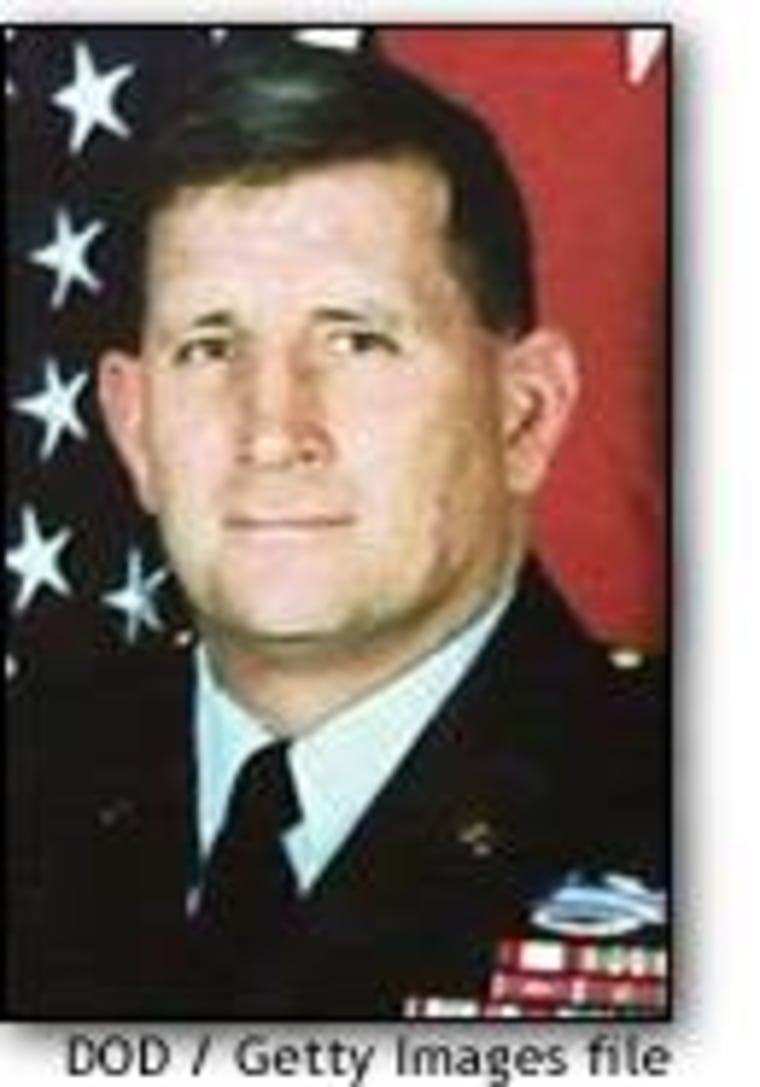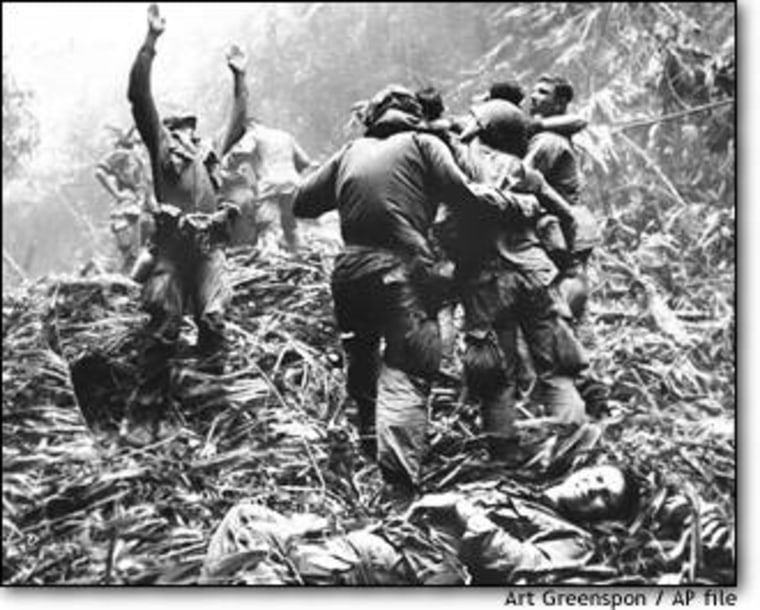In a changing of the guard in the U.S. Army, Defense Secretary Donald Rumsfeld has chosen as the Army’s next chief of staff a retired special operations forces general whose career did not include combat in Vietnam or service in “regular Army” units, U.S. military officials say.
THE NOMINATION of Peter J. Schoomaker, a retired four-star general, was confirmed by senior military officials and is expected to be announced next week. Schoomaker, if confirmed by the Senate, would be the first service chief in decades who did not spend his formative years as a young officer in Vietnam or the bulk of his career in the Army’s traditional power bases — armor, artillery or the infantry. Schoomaker became an officer in 1969 through an ROTC program at the University of Wyoming, and so served during the Vietnam era. However, Schoomaker’s service took him first to West Germany and then South Korea before he was assigned to Fort Bragg, home to the Army’s most elite units.
UNCONVENTIONAL
Special ops units based there traditionally have had testy relations with their comrades in the regular Army units, and suspicions about their enthusiasm for unconventional doctrines has kept them from the most senior leadership positions.

“This is the start of a new generation of leaders, and it’s part and parcel of what Rumsfeld is trying to do across the board in the Army with smaller forces, scattered around in more places, more mobile and able to be deployed in smaller, more potent packages,” says Col. Jack Jacobs, a retired Army officer who received the Medal of Honor for his service in Vietnam.
“Vietnam was 35 years ago, and it took 35 years to figure out that the world has changed, and yet we retain the same old structure that goes back to the Napoleonic era in the Army.”
The unconventional thinking that is the hallmark of special operations units appears to be just the kind of thinking Rumsfeld is looking for, and the reason he passed over dozens of qualified active-duty generals and has asked Schoomaker to come out of retirement.
“This confirms that Rumsfeld’s not kidding about kicking the Army into shape,” a senior military officer from another service branch said, requesting anonymity. “Before the Iraq war, the staff guys screamed about not having enough troops. Rumsfeld thinks they have too many, and too many of them in tanks that can’t be moved to the battlefield fast enough.”
TACTICAL DISPUTES
InsertArt(1949688)It also is a direct challenge to the operative U.S. military thinking of the 1980s and 1990s in the U.S. military — the idea that no U.S. military involvement should be mounted anywhere without overwhelming force and a clear exit strategy. This thinking, which grew out of the awful experiences of the Vietnam War, became known as the “Powell doctrine” after Gen. Colin Powell, who was chairman of the Joint Chiefs of Staff during the first Gulf War and as such insisted on overwhelming force to eject Iraq from Kuwait in 1991.
Powell, of course, is now Rumsfeld’s Cabinet colleague as secretary of state. But in his 1995 autobiography, he laid out the case for avoiding another Vietnam this way: “Many of my generation, the career captains, majors and lieutenant colonels seasoned in that war, vowed that when our turn came to call the shots, we would not quietly acquiesce in half-hearted warfare for half-baked reasons that the American people could not understand or support.”
The internal Bush administration battles that became public last summer over the number of troops needed to win an Iraq war had much to do with Rumsfeld’s rejection of a pure reading of “the Powell doctrine.”
Rumsfeld oversaw the final withdrawal of of U.S. forces from Vietnam during his first stint as defense secretary in the mid-1970s. Nonetheless, he has made it clear from his first days back at the Pentagon that he would throw his weight behind “transformation” of the military, a radical doctrine embraced by many officers and military theorists, which holds that the current U.S. military is clinging to a force structure, weaponry and tactics designed to fight the Soviet Union in the Cold War.
INSTITUTIONAL RESISTANCE
Also known as the “revolution in military affairs,” the transformation effort has created enormous friction inside the four branches of the military, each of which perceives in it a threat to major weapons systems or cherished doctrines.
Nowhere has the threat been viewed as seriously as in the Army, the largest and, in many ways, the least dynamic of the services. According to several military experts and retired officers who have recently spent time with Rumsfeld, the secretary is particularly determined to slim down the 10 active-duty Army units, all of which now command between 15,000 and 20,000 troops.
“It is just too unwieldy to think we can get something that big in place fast enough,” says a civilian expert who has acted as an adviser to Rumsfeld on transformation issues. “Rumsfeld agrees that more brigade-sized units (of about 5,000) are appropriate for the world we’re in today.”
Other changes the secretary is pushing, the adviser says, include forcing the Army to base less of its thinking on the M1A2 Abrams main battle tank, the 68-ton battering ram of the Army’s heavy divisions, which are very difficult to move to a battlefield quickly. “That means you stop thinking of the tank the way the Navy thinks of its aircraft carriers,” the adviser said.
SLIMMING DOWN
That is precisely the kind of thinking that Schoomaker, as a special operations forces veteran unencumbered by bitter memories of Vietnam, would bring to the service.
James Schlesinger, who served as defense secretary and CIA director under Richard Nixon and Gerald Ford, cautions that too much could be read into the fact that Schoomaker never served in Vietnam.
“The defining experience was not necessarily service in Vietnam, it was being around during the Vietnam years when the Army came under heavy criticism in the United States,” he says.
Still, Schlesinger agreed that given the needs of the times, Schoomaker’s willingness to press Rumsfeld’s vision of a lighter, smaller Army might make him “an ideal chief of staff.”
Michael Moran is a senior correspondent for MSNBC.com.
